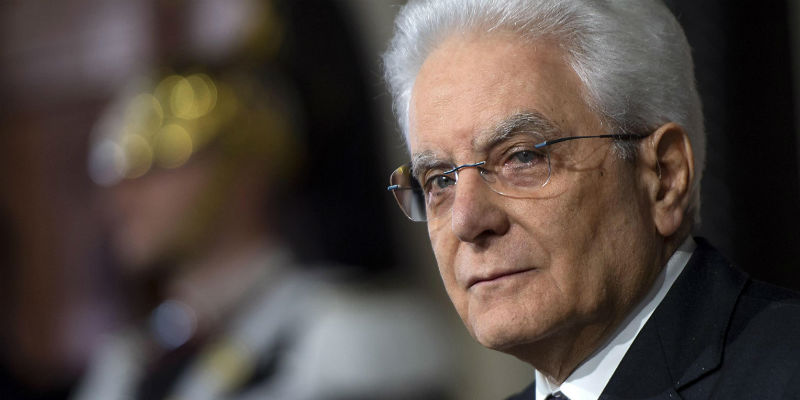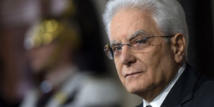Mattarella met the ambassador at his Quirinale palace and, "thanking him, cordially accepted" to go to France, the Italian presidency said in a statement.
No dates were mentioned.
Masset was recalled to Paris last week as the French government was outraged by Italian Deputy Prime Minister Luigi Di Maio's decision to hold a meeting near Paris with the Yellow Vest protest movement.
The French Foreign Ministry called the move "an additional and unacceptable provocation," adding to previous "repeated accusations, baseless attacks and extreme declarations" from Rome.
Recalling an ambassador is a harsh rebuke in diplomatic terms, and unusual between two European Union allies. The last time Paris took such an action against Rome was reportedly during World War II.
Earlier Friday, French EU Affairs Minister Nathalie Loiseau told RTL broadcaster that the air had been cleared between Rome and Paris and that Masset was going to return to his post.
She explained that a Tuesday phone call between Macron and Mattarella helped ease tensions.
Mattarella is a non-partisan figure, unattached to Di Maio's anti-establishment Five Star Movement (M5S) or to the other ruling party, the far-right League of Interior Minister Matteo Salvini.
Both Salvini and Di Maio have engaged in a months-long war of words against Macron, accusing him, among other things, of colonialism in Africa and failing to help Italy on migration.
"I'm glad the polemic is over," Salvini commented on Twitter.
With that, he renewed a request to re-discuss with his French counterpart the extradition of "some" of the 15 former Italian left-wing terrorists he said have been hiding in France for years.
Meanwhile, Di Maio distanced himself from the more radical members of the Yellow Vest movement, saying he would no longer seek an alliance with anyone advocating violence.
Di Maio is looking for partners in Europe to form a new group in the European Parliament. So far, the M5S has found populist, anti-establishment allies in Poland, Greece, Finland and Croatia.
No dates were mentioned.
Masset was recalled to Paris last week as the French government was outraged by Italian Deputy Prime Minister Luigi Di Maio's decision to hold a meeting near Paris with the Yellow Vest protest movement.
The French Foreign Ministry called the move "an additional and unacceptable provocation," adding to previous "repeated accusations, baseless attacks and extreme declarations" from Rome.
Recalling an ambassador is a harsh rebuke in diplomatic terms, and unusual between two European Union allies. The last time Paris took such an action against Rome was reportedly during World War II.
Earlier Friday, French EU Affairs Minister Nathalie Loiseau told RTL broadcaster that the air had been cleared between Rome and Paris and that Masset was going to return to his post.
She explained that a Tuesday phone call between Macron and Mattarella helped ease tensions.
Mattarella is a non-partisan figure, unattached to Di Maio's anti-establishment Five Star Movement (M5S) or to the other ruling party, the far-right League of Interior Minister Matteo Salvini.
Both Salvini and Di Maio have engaged in a months-long war of words against Macron, accusing him, among other things, of colonialism in Africa and failing to help Italy on migration.
"I'm glad the polemic is over," Salvini commented on Twitter.
With that, he renewed a request to re-discuss with his French counterpart the extradition of "some" of the 15 former Italian left-wing terrorists he said have been hiding in France for years.
Meanwhile, Di Maio distanced himself from the more radical members of the Yellow Vest movement, saying he would no longer seek an alliance with anyone advocating violence.
Di Maio is looking for partners in Europe to form a new group in the European Parliament. So far, the M5S has found populist, anti-establishment allies in Poland, Greece, Finland and Croatia.









 Home
Home Politics
Politics











